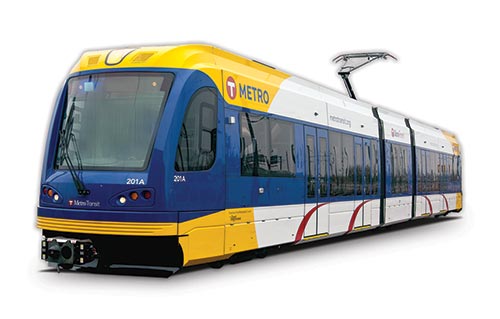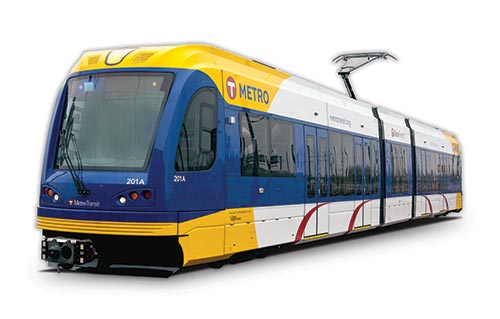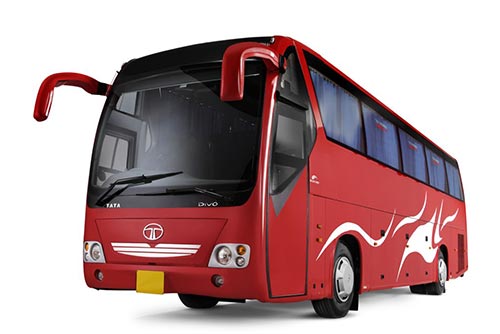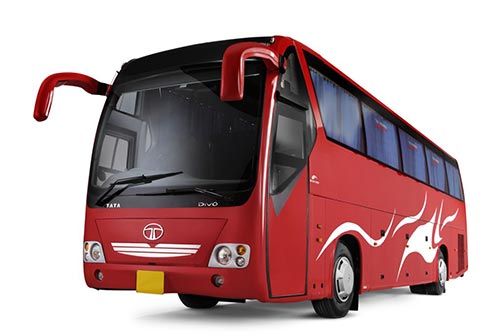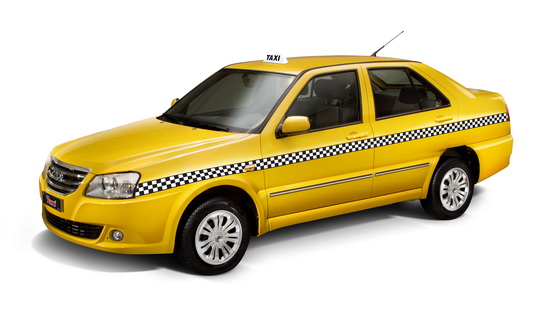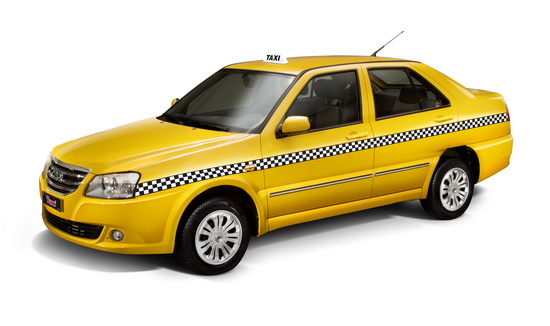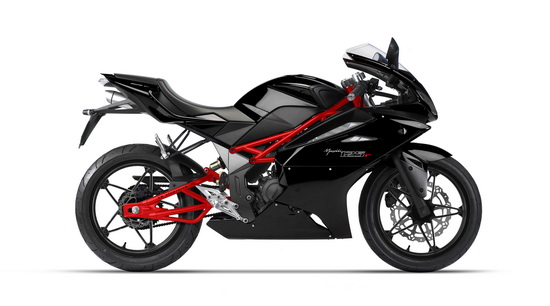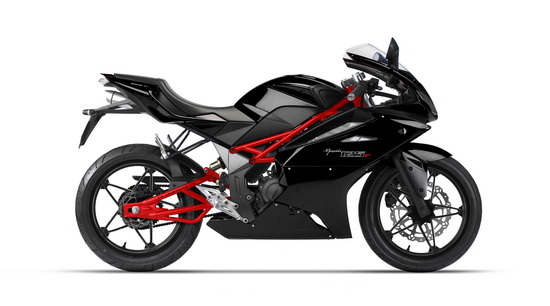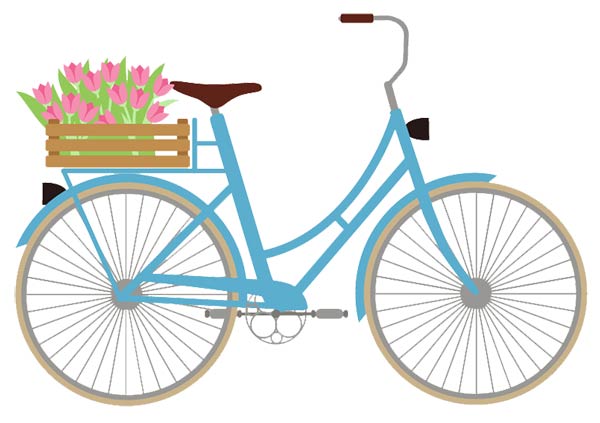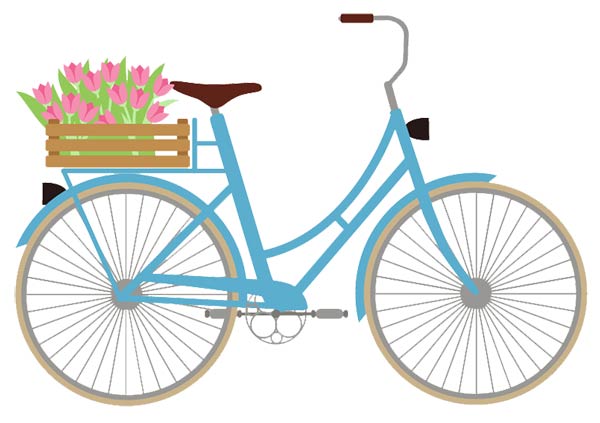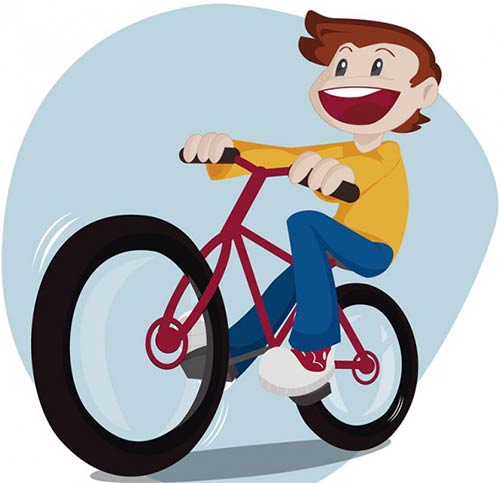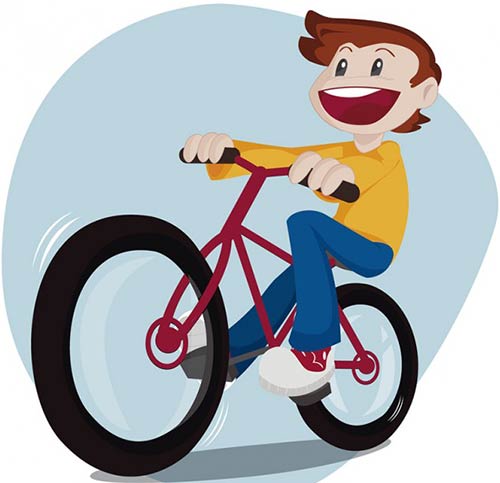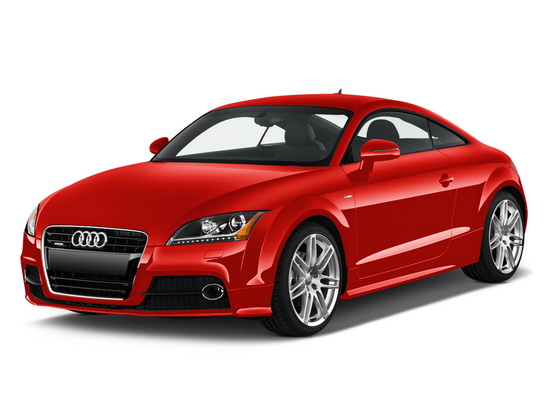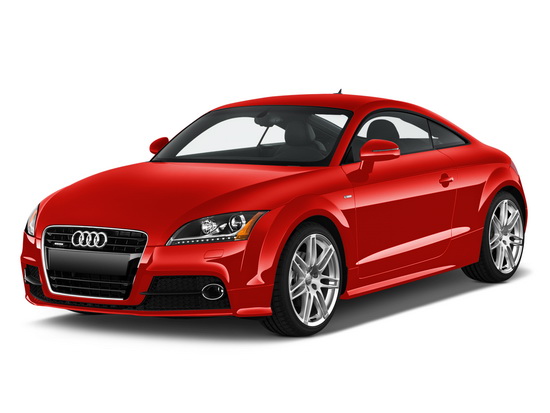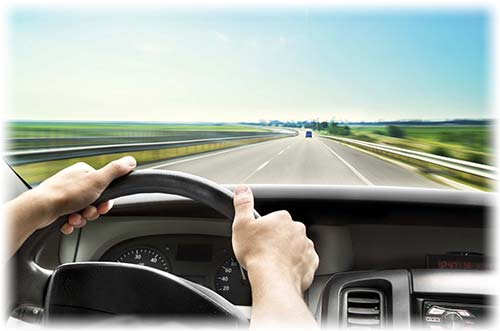train
A set of several carriages that are connected to each other and pulled along a railway line by an engine
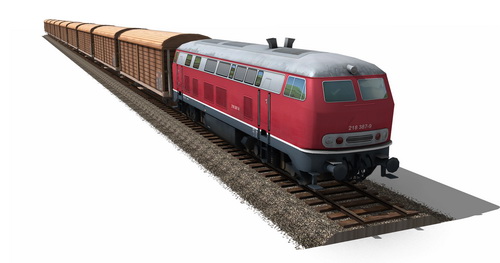
قطار، ترن
Did you come by train?
آیا با قطار آمدی؟
A set of several carriages that are connected to each other and pulled along a railway line by an engine
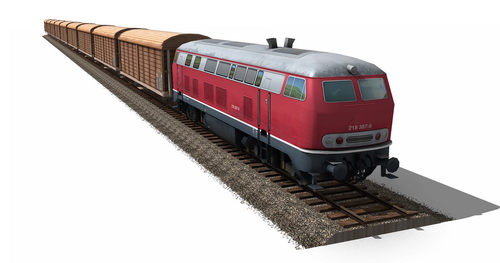
قطار، ترن
Did you come by train?
آیا با قطار آمدی؟
Oxford Essential Dictionary
train
verb (trains, training, trained )
1 to teach a person or an animal to do something:
He was trained as a pilot.
2 to make yourself ready for something by studying or doing something a lot:
Ann is training to be a doctor.
She's training for the Olympics.
noun
a vehicle that is pulled by an engine along a railway line:
I'm going to Bristol by train.
We caught the 7.15 train to Leeds.
You have to change trains at Reading.
word building
You get on and off trains at a station. A goods train or a freight train carries things and a passenger train carries people.
Longman Dictionary of Contemporary English
train
I. train1 S1 W2 /treɪn/ BrE AmE noun [countable]
[Date: 1400-1500; Language: Old French; Origin: 'something that is pulled along behind', from trainer; ⇨ ↑train2]
1. RAILWAY a set of several carriages that are connected to each other and pulled along a railway line by an engine
train to
the train to Munich
We went all the way to Inverness by train. ⇨ ↑boat train
2. SERIES a train of something a series of events or actions that are related:
The decision set off a train of events which led to his resignation.
3. train of thought a related series of thoughts that are developing in your mind:
The phone interrupted my train of thought.
I’ve lost my train of thought.
4. bring something in its train formal if an action or event brings something in its train, that thing happens as a result of it:
a decision that brought disaster in its train
5. set something in train British English formal to make a process start happening:
Plans to modernize have been set in train.
6. PEOPLE/ANIMALS a long line of moving people, animals, or vehicles:
a camel train
7. DRESS a part of a long dress that spreads out over the ground behind the person wearing it:
a wedding dress with a long train
8. SERVANTS a group of servants or officers following an important person, especially in the past
• • •
COLLOCATIONS
■ verbs
▪ take/get a train I took the first train home.
▪ catch a train He was in a hurry to catch a train.
▪ go by/travel by train We decided to go by train.
▪ get on/board a train At Stoke, another passenger boarded the train.
▪ get off a train He got off the train at Flushing.
▪ wait for a train She sat on the railway platform for half an hour, waiting for a train.
▪ miss a train (=be too late to get on a train) I just missed the last train.
▪ trains run (=take people from one place to another at fixed times) Trains run from two main London stations, Victoria and Charing Cross, every hour.
▪ a train arrives The train arrived on time.
▪ a train leaves/departs Trains depart from Rugby at half-hourly intervals until 4.00 pm.
▪ a train pulls into/out of a station The train pulled into Euston station and I got off.
▪ a train derails/is derailed (=comes off the rails) Most of the passengers escaped injury when their train was derailed.
■ adjectives/NOUN + train
▪ a freight/goods train a freight train carrying hazardous chemicals
▪ a passenger train a passenger train bound for Geneva
▪ a commuter train (=a train that people going to work use) a crash involving two crowded commuter trains
▪ an express train/a fast train (=one that does not stop at many places) He boarded the express train to London.
▪ a slow train (also a stopping train British English) (=one that stops at a lot of places) We got on the stopping train by mistake and it took hours to get home.
▪ a steam train Railway enthusiasts have the opportunity to take a nostalgic trip on a steam train.
▪ a tube/underground train (=one that runs under London) The condition of many tube trains is a disgrace.
■ train + NOUN
▪ a train journey British English, a train trip American English They were not looking forward to the long train journey.
▪ a train fare How much is the train fare to Derby?
▪ a train driver The train driver apologized for the late departure.
▪ a train crash (also a train wreck American English) Ten people were killed in the train crash.
■ COMMON ERRORS
► Do not say 'go by the train' or 'travel by the train'. Say go by train or travel by train.
II. train2 S1 W2 BrE AmE verb
[Word Family: noun: ↑trainee, ↑trainer, ↑training, ↑retraining; verb: ↑train, ↑retrain; adjective: trained ≠ ↑untrained]
[Date: 1300-1400; Language: Old French; Origin: trainer 'to pull, drag', from Vulgar Latin traginare, probably from Latin trahere 'to pull']
1. TEACH SOMEBODY [intransitive and transitive] to teach someone the skills of a particular job or activity, or to be taught these skills ⇨ training
train somebody in something
All staff will be trained in customer service skills.
train to do something
She’s training to be a doctor.
train somebody to do something
Employees are trained to deal with emergency situations.
train as
Nadia trained as a singer.
a highly trained workforce
Trained staff will be available to deal with your queries.
2. TEACH AN ANIMAL [transitive] to teach an animal to do something or to behave correctly:
a well-trained puppy
train something to do something
These dogs are trained to detect drugs.
3. PREPARE FOR SPORT [intransitive and transitive] to prepare for a sports event or tell someone how to prepare for it, especially by exercising ⇨ training
train for
Brenda spends two hours a day training for the marathon.
4. AIM SOMETHING [transitive] to aim something such as a gun or camera at someone or something
train something on/at somebody/something
She trained her binoculars on the bird.
5. DEVELOP SOMETHING [transitive] to develop and improve a natural ability or quality:
You can train your mind to relax.
To the trained eye the difference between these flowers is obvious (=the difference is clear to someone who has developed skills to notice something).
6. PLANT [transitive] to make a plant grow in a particular direction by bending, cutting, or tying
Oxford Advanced Learner's Dictionary
train
train [train trains trained training] noun, verb [treɪn] [treɪn]
noun
1. a railway/railroad engine pulling a number of coaches/cars or trucks, taking people and goods from one place to another
• to get on/off a train
• I like travelling by train.
• a passenger/commuter/goods/freight train
• to catch/take/get the train to London
• a train journey/driver
• You have to change trains at Reading.
• There are regular train services to Edinburgh and Glasgow.
see also gravy train, road train, wagon train
2. a number of people or animals moving in a line
• a camel train
3. usually singular a series of events or actions that are connected
• His death set in motion a train of events that led to the outbreak of war.
4. the part of a long formal dress that spreads out on the floor behind the person wearing it
Word Origin:
Middle English (as a noun in the sense ‘delay’): from Old French train (masculine), traine (feminine), from trahiner (verb), from Latin trahere ‘pull, draw’. Early noun senses were ‘trailing part of a robe’ and ‘retinue’; the latter gave rise to ‘line of travelling people or vehicles’, later ‘a connected series of things’. The early verb sense ‘cause a plant to grow in a desired shape’ was the basis of the sense ‘instruct’.
Culture:
railways and railroads
The world’s first railway along which passengers travelled on trains pulled by steam locomotives was opened in 1825 between Stockton and Darlington in north-east England. By the early 1900s, when railways reached the height of their popularity, there were about 23 000 miles/37 000 kilometres of railway track. Victorian engineers such as Isambard Kingdom Brunel designed bridges for the railway, and architects designed elaborate station buildings such as St Pancras in London.
The railways played a vital role in Britain’s industrial development during the 19th and early 20th centuries. Later, with the invention of the internal combustion engine (= the type of engine used in cars), road transport became more popular for both goods and passengers. In 1947 regional railway companies were nationalized and became British Rail (later BR), but following the Beeching report in 1963 many lines (= routes) were closed in order to save money. In 1994 the government decided that BR should be returned to private ownership. Tracks and stations were made the responsibility of a company called Railtrack, while trains were once again operated by several companies on a regional basis. People have been encouraged to use trains and other forms of public transport to help reduce fuel consumption and pollution.
The railway network connects all the major towns in Britain, and now, via the Channel Tunnel, links Britain with France and Belgium. Railways are used for both short and long journeys, for commuting to work each day, and for transporting freight. In 2003 more than a billion journeys were made by rail in Britain and rail travel had increased by 36% in ten years. Some routes are now electrified and have high-speed trains. Others still rely on diesel-powered locomotives. Some trains are old, dirty and overcrowded. They also have a reputation for being late, and jokes are often made about the excuses given for delays. These have included ‘leaves on the line’ in autumn, and ‘the wrong kind of snow’. Tickets are quite expensive, although students and old people can get railcards which entitle them to cheaper fares.
Following several major railway accidents and the failure of the Railtrack company in 2002 the government set up Network Rail to be responsible for the railway system used by the train operating companies, private companies which run the trains. These companies provide information about trains to the public through their organization, National Rail.
Most Americans have never been on a train. This is sad because the railroads, as they are generally called in the US, were the means by which the Old West was settled. Passenger trains today mainly serve commuters around large cities. The only major long-distance railway business is done by freight trains (BrE also goods trains).
The first US rail company was the Baltimore & Ohio Railroad in 1828, but its cars (BrE carriages) were pulled by horses. Steam power was used by the 1830s, and the Pullman car was invented in 1856. The Civil War led to the rapid development of railroads, and the nation was connected from east to west in 1869 when the Union Pacific Railroad and Central Pacific joined their tracks in Utah. The 20th century brought more powerful locomotives and huge stations, like Grand Central in New York. The greatest period of US railroads began in the middle of the 19th century and lasted about 100 years. This time has been celebrated with popular songs like I’ve Been Working on the Railroad, Freight Train Blues, John Henry, Chattanooga Choo Choo, Orange Blossom Special and Casey Jones. Trains and railroad workers were also the subjects of many films and novels.
After World War II car ownership greatly increased and people no longer used trains as a means of transport. Union Pacific, once known for its two-level ‘dome lounge cars’ from which passengers could see the scenery, stopped long-distance passenger services in 1971. Amtrak, a company controlled by the government, now runs the California Zephyr, the Texas Eagle and other trains but it is not very successful in attracting passengers.
Some Americans are train buffs and take special steam locomotive trips. Americans also collect model trains, some of which, including the heavy Lionel sets from the 1940s, are now valuable. In Britain old and young alike visit railway museums at e.g. Didcot and York. Trainspotting (= recording the names and registration numbers of locomotives) used to be a popular hobby, especially for boys, but is less common now.
Example Bank:
• Driven to despair, he threw himself under a train.
• From Germany they travelled by train to Poland.
• From Germany we'll travel by train to Poland.
• He was leaving on the early train for Zaragoza.
• He was pushed into the path of an oncoming train.
• I can't stop now, I have a train to catch.
• I got the through train to Manchester.
• I lose my train of thought when there are distractions.
• I saved up my pocket money to buy an electric train set.
• I saved up to buy an electric train set.
• I was late and had to run for my train.
• I'm going to the station to meet her off the train.
• In summer the trains run as often as every ten minutes.
• In the train of= following behind the rich and famous came the journalists.
• It's quicker by train.
• Most trains are running late because of the accident.
• She ran alongside the departing train, waving goodbye.
• She travels on the same train as you.
• She tried to kill herself by jumping off a moving train.
• Slowly the train began to move.
• The 10.19 train has been cancelled.
• The 15.18 Amtrak train to Chicago will be arriving on track 3.
• The company plans to run trains on key intercity routes.
• The high-speed train travels at 120 mph.
• The last train leaves at 00.30.
• The next train is due at 9.45.
• The next train to arrive at Platform 2 is the 12.30 from Leeds.
• The telephone rang and she lost her train of thought.
• The train came in and I got on.
• The train came towards them.
• The train chugged slowly forward.
• The train drew into the station.
• The train entered the tunnel.
• The train headed out of Athens.
• The train jolted into motion.
• The train now standing at Platform 3 is the 16.50 to Brighton.
• The train reached Prague at half past six.
• The train terminated in Baltimore.
• Unemployment brings greater difficulties in its train.
• We didn't want to leave the platform in case the train came.
• We had to get up early to make the 6 o'clock train for Florence.
• We jumped on the train just as it was about to leave.
• What are the times of the return trains?
• You'll have to change trains at Cambridge.
• a carnival with ghost trains and dodgem cars
• a picture of the bullet train speeding past Mount Fuji
• a train hauled by a steam locomotive
• a train waiting at a signal
• an express train bound for Edinburgh
• an initial omission which set in motion a train of events leading to the crime
• the Paris to Brussels train
• the people on the train
• the roar of a passing train
• the sound of an approaching train
• the train from Birmingham to Worcester
• the train from Toronto to Calgary
• train loads of iron ore
• trains between Brindisi and Rome
• trains between Cape Town and Pretoria
Idioms: bring something in its train ▪ in somebody's train ▪ set something in train ▪ train of thought
Derived: train something at somebody
verb
1. transitive, intransitive to teach a person or an animal the skills for a particular job or activity; to be taught in this way
• ~ sb/sth badly trained staff
• ~ sb/sth to do sth They train dogs to sniff out drugs.
• ~ (sb) (as/in/for sth) He trained as a teacher before becoming an actor.
• All members of the team have trained in first aid.
• ~ to do/be sth Sue is training to be a doctor.
2. intransitive, transitive to prepare yourself/sb for a particular activity, especially a sport, by doing a lot of exercise; to prepare a person or an animal in this way
• ~ (for/in sth) athletes training for the Olympics
• I train in the gym for two hours a day.
• ~ sb/sth (for/in sth) She trains horses.
• He trains the Olympic team.
3. transitive to develop a natural ability or quality so that it improves
• ~ sth An expert with a trained eye will spot the difference immediately.
• ~ sth to do sth You can train your mind to think positively.
4. transitive ~ sth (around/along/up, etc.) to make a plant grow in a particular direction
• Roses had been trained around the door.
Word Origin:
Middle English (as a noun in the sense ‘delay’): from Old French train (masculine), traine (feminine), from trahiner (verb), from Latin trahere ‘pull, draw’. Early noun senses were ‘trailing part of a robe’ and ‘retinue’; the latter gave rise to ‘line of travelling people or vehicles’, later ‘a connected series of things’. The early verb sense ‘cause a plant to grow in a desired shape’ was the basis of the sense ‘instruct’.
Example Bank:
• He's been training seriously for over a year now.
• The team is training hard for the big match.
• All members of the team have been trained in first aid.
• I was impressed by the well trained staff.
• We watched the athletes training for the Olympics.
Cambridge Advanced Learner's Dictionary
train
train (PART OF DRESS) /treɪn/
noun [C]
the part of a long dress that spreads out onto the floor behind:
an elaborate wedding dress with a long train
train (SERIES) /treɪn/
noun
1 train of thought/events a series of connected thoughts or events:
What amazing train of thought led you from Napoleon to global warming?
The book describes the train of events that led up to the assassination.
2 [C] a line of animals, people or things moving along together:
a wagon train
a mule/camel train
train (DIRECT GROWTH) /treɪn/
verb [T]
to direct the growth of a plant in a particular direction by cutting it and tying it:
The vines were trained over an arch, providing shade as well as fruit.
train (AIM) /treɪn/
verb [T usually + adverb or preposition] FORMAL
to aim or point a gun, camera, light, etc. at someone or something:
With five guns suddenly trained on him, he was understandably nervous.
train (PREPARE) /treɪn/
verb [I or T]
to prepare or be prepared for a job, activity or sport, by learning skills and/or by mental or physical exercise:
She trained as a pilot.
[+ to infinitive] Isn't Michael training to be a lawyer?
[R + to infinitive] I've had to train myself to be more assertive at work.
She trained hard for the race, sometimes running as much as 60 miles a week.
HUMOROUS I'm trying to train my boyfriend to do the occasional bit of housework.
trained /treɪnd/
adjective
I didn't realize Philippa was a trained nurse.
Are you trained in the use of this equipment?
HUMOROUS "Did I hear you say your children cleared up after the party?" "Oh yes, I've got them well-trained!"
trainee /ˌtreɪˈniː/
noun [C]
a person who is learning and practising the skills of a particular job:
a trainee dentist/electrician
trainer /ˈtreɪ.nəʳ/ US /-nɚ/
noun [C]
a person who teaches skills to people or animals and prepares them for a job, activity or sport:
They showed pictures of the horse and its trainer (= the person who prepared it for its races).
A lot of wealthy people have their own personal trainer (= a person they employ to help them exercise).
See also trainer.
training /ˈtreɪ.nɪŋ/
noun [U]
the process of learning the skills you need to do a particular job or activity:
a training course
a teacher-training college
New staff have/receive a week's training in how to use the computers.
train (VEHICLE) /treɪn/
noun [C]
a railway engine connected to carriages for carrying people or wheeled containers for carrying goods:
a goods/freight/passenger train
the train to/from Bristol
a train journey/station
Did you come by train?
She caught/took the train to Edinburgh.
Hurry up, or we'll miss (= arrive too late for) the train.
Collins COBUILD Advanced Learner’s English Dictionary
train
I. NOUN USES
/treɪn/
(trains)
Frequency: The word is one of the 1500 most common words in English.
1.
A train is a number of carriages, cars, or trucks which are all connected together and which are pulled by an engine along a railway. Trains carry people and goods from one place to another.
The train pulled into a station...
We can catch the early morning train...
He arrived in Shenyang by train yesterday.
N-COUNT: also by N
2.
A train of vehicles, people, or animals is a long line of them travelling slowly in the same direction.
...a long train of oil tankers.
N-COUNT: with supp, usu N of n
3.
A train of thought or a train of events is a connected sequence, in which each thought or event seems to occur naturally or logically as a result of the previous one.
He lost his train of thought for a moment, then recovered it...
Giles set in motion a train of events which would culminate in tragedy.
N-COUNT: usu sing, N of n
4.
The train of a woman’s formal dress or wedding dress is the long part at the back of it which flows along the floor behind her.
N-COUNT
5.
If a process or event is in train or has been set in train, it is happening or starting to happen. (mainly BRIT; in AM, usually use in motion)
He praised the economic reforms set in train by the government.
PHRASE: v-link PHR, PHR after v
II. VERB USES
/treɪn/
(trains, training, trained)
Frequency: The word is one of the 1500 most common words in English.
1.
If someone trains you to do something, they teach you the skills that you need in order to do it. If you train to do something, you learn the skills that you need in order to do it.
The US was ready to train its troops to participate...
Stavros was training to be a priest...
Psychiatrists initially train as doctors...
We don’t train them only in bricklaying, but also in other building techniques...
Companies tend to favour the lawyer who has trained with a good quality City firm...
I’m a trained nurse...
VERB: V n to-inf, V to-inf, V as/in n, V n as/in n, V, V-ed
• -trained
Mr. Koutab is an American-trained lawyer.
COMB in ADJ
• train‧er (trainers)
...a book for both teachers and teacher trainers.
N-COUNT
2.
To train a natural quality or talent that someone has, for example their voice or musical ability, means to help them to develop it.
I see my degree as something which will train my mind and improve my chances of getting a job...
VERB: V n
3.
If you train for a physical activity such as a race or if someone trains you for it, you prepare for it by doing particular physical exercises.
Strachan is training for the new season...
He has spent a year training crews for next month’s round the world race.
VERB: V for n, V n for n, also V, V n
• train‧er
She went to the gym with her trainer.
N-COUNT
4.
If an animal or bird is trained to do particular things, it is taught to do them, for example in order to be able to work for someone or to be a good pet.
Sniffer dogs could be trained to track them down.
...a man who trained hundreds of dogs...
VERB: be V-ed to-inf, V n, also V n to-inf
• train‧er
The horse made a winning start for his new trainer.
N-COUNT
5.
If you train something such as a gun, a camera, or a light on a person or thing, you aim it at them and keep it towards them.
She trained her binoculars on the horizon...
VERB: V n on n
6.
If you train a tree, bush, or plant in a particular direction, you tie it and cut it so that it grows in that direction.
Instead of training the shoots up the fence, lay them flat in both directions alongside it...
You could even put a trellis on your walls and train plants to grow up it.
VERB: V n prep, V n to-inf
Merriam-Webster's Advanced Learner's Dictionary
1train /ˈtreɪn/ noun, pl trains
1 : a group of vehicles that travel on a track and are connected to each other and usually to an engine : a connected group of railroad cars
[count]
• The train pulled into the station.
• You can get off/on the train in Atlanta.
• I took a train to Madrid.
• We caught the last train.
• We slept on the train.
• a passenger train [=a train that people use for traveling]
• a commuter train [=a train that people use to get to and from work]
• an express train [=a train that has very few stops]
• a subway train [=an underground train]
• (US) a freight train = (Brit) a goods train [=a train carrying cargo]
[noncount]
• We traveled by train through Europe.
- often used before another noun
• a train [=railroad] station
• train tracks
• a train schedule/signal/ticket
• a train crash = (US) a train wreck
2 [count] old-fashioned : a group of people, vehicles, or animals that are moving in a line
• a funeral train
• a mule train
- see also wagon train
3 [count] : an orderly series of events, actions, or ideas
• a train of events
• I lost my train of thought [=I forgot what I was thinking about] when you interrupted me.
4 [count] technical : a series of moving machine parts (such as gears) for controlling motion
• There's a problem with the car's drive train.
• the gear train
5 [count] : a part of a long dress that trails behind the woman who is wearing it
• the bride's train
- see color picture
in train Brit formal : in an active state or condition
• a process that had been in train for decades
• The plans have been set in train. [=set in motion]

